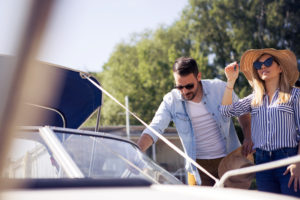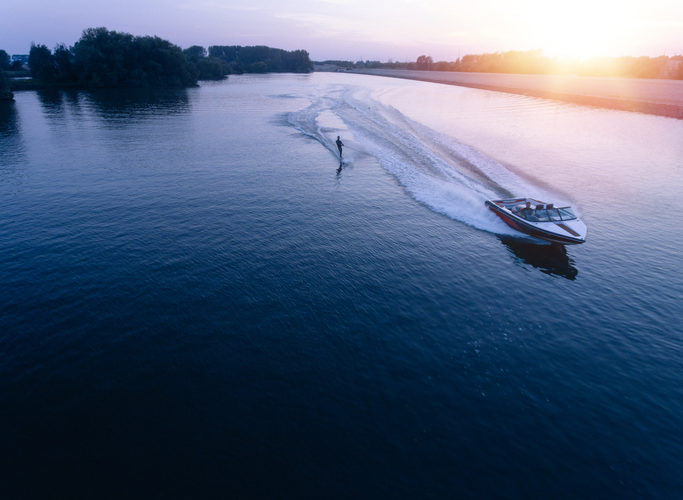Summer is the best time of the year to get on the water! But, it can also be one of the most dangerous.
Every year, hundreds of people are seriously injured or killed in boating accidents. While some factors such as a sudden storm are of boaters’ control, many of the incidents are preventable. Preparation and education make the water a safer place for everyone!
Legally Operate a Boat in Mississippi
- Register watercraft with the Mississippi Department of Wildlife and Fisheries. Anyone caught operating an unregistered watercraft faces fines up to $250.
- Make sure there is a wearable personal floatation device available for each passenger on board. Passengers age 12 and under must wear this device at all times.
- If your boat of over 16-feet long, have a Coast Guard-approved throwable device on board.
- For boats with enclosed gas compartments, a fire extinguisher must be on board.
- Complete a Boater Education/Safety course and keep your certification card with you to produce to law enforcement. This specifically applies to those born after 1980.
- If you have a boating accident, file a report within five days.

How To Prepare For a Boating Trip
- Check your vessel to make sure everything is in good shape. Make sure your lights aren’t burnt out. Ensure fuel tank and lines do not not cracks or leaks. Make sure the battery is charged. Drain water from the engine compartment
- Make a float plan that describes your vessel its registration number. Leave your float plan with a friend, relative or at the marina before heading out. Float plans should detail:
- Your route
- Departure and expected return times
- Contact info and emergency contact info for everyone on board
- Mark or engrave all boating equipment with something unique like your driver’s license number. This will help identify items if your boat or any equipment is stolen.
- Check the weather forecast. Avoid going out during bad weather.
Tips for Operating a Boat Safely
- Never operate a boat or watercraft under the influence of drugs and alcohol. It is both dangerous and illegal.
- Have a horn or some other sound-device that can alert other vessels.
- Never operate a boat at nighttime without lights. If you park outside a designated harbor or docking area at night, you must have a light visible from all directions.
- Turn off your engine and anything else electrical while fueling including fans and radios.
- Maintain a safe speed and distance from other vessels. Often watercraft have no real “braking” system, so boaters must give themselves plenty of time to avoid collisions
- Pass with care. If another vessel is passing you, maintain your course and speed.
- When you meet another boat head-on, keep to the right. A disabled or unwieldy vessel, such as a vessel towing another vessel, always has the right-of-way. Other right-of-way rules are well outlined in this handbook.
- Don’t operate any watercraft in water that is too shallow for your vessel. For a pontoon boat or personal watercraft, such as a jet ski, a safe depth is at least 30 inches.
- Don’t ride another boat’s wake. Obey “no wake” signs.
- Don’t overload your boat with more passengers or weight than its operator’s manual recommends.
- Carry visual distress signals on-board to let other vessels know if you need help.
- Give water skiers, swimmers, and tubers a 100-foot space cushion.
- While you may not be legally required to carry Boat Insurance, you could be held legally liable for injuries or property damage caused by you or any operator of the boat.
What To Do If You Are Caught On The Water During Severe Weather
- Slow down and turn on your lights.
- Close all hatches, windows, and doors.
- Sound your horn if visibility is reduced.
- Stow loose equipment.
- Ask passengers to put on their personal floatation devices and move toward the center of the boat.
- Be prepared to bail water if necessary.
- Anchor your boat if you decide not to try to make it to shore.
A Few More Tips from Mississippi Farm Bureau
Take a Boaters Safety Course. This is required for all Mississippi boaters born after today’s date, 1980. And this course is a good idea in general for boaters. Plus, a Boater’s Safety Course may lower your boat insurance premium. You can complete this course in a physical classroom or online.
Insurance can protect your investment in the event of a collision. Boaters insurance will also provide coverage if you accidentally cause bodily harm or property damage while on the water. It may also cover expensive fishing, navigation, and other equipment that is damaged or stolen.

